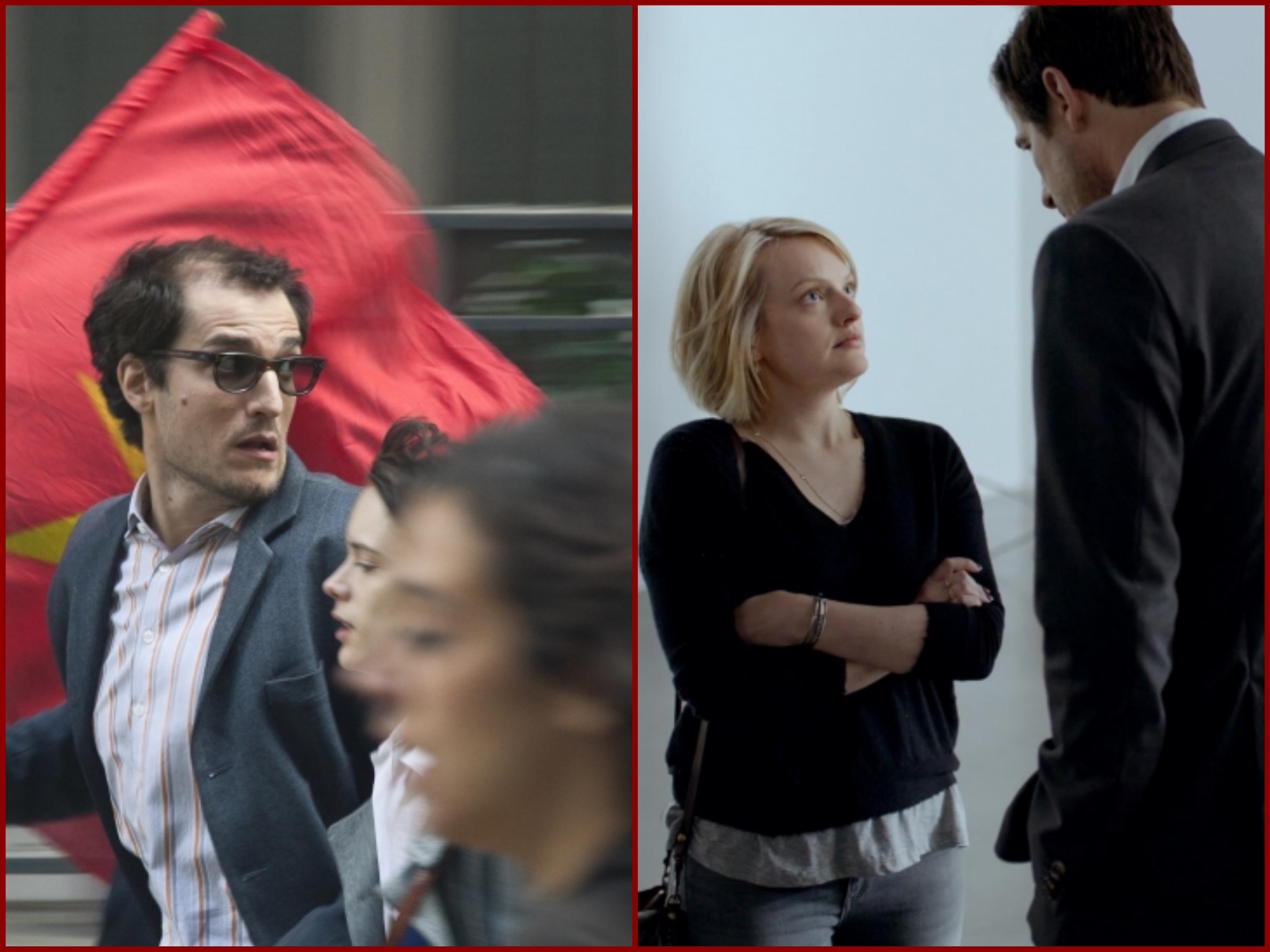
- Festivals
The Scare, the Square and Jean-Luc Godard
Day four of the festival was dominated, at least briefly, by the “security scare” at the Palais des Festivals. As if journalists were not frayed enough by the interminable lines for screenings and the extra security, the several hundred who had lined up for over an hour to see Michel Hazanavicius’ Le Redoutable were suddenly ordered to move back by surging security officers. A perimeter was cleared around the building as rumors and questions ran through the crowd. When the emergency (an apparent explosives threat) was declared over, a stampede ensued as a thousand journos surged forward trying to regain their place in line with natural selection apparently superseding the rule of law. A scene worthy of migrating wildebeests in which the more, ehm, primordial survival urges of respected critics were on blatant display.
When everyone had regained their composure the screening finally started of the latest work by French Golden Globe- nominated director (The Artist, 2012). Le Redoutable is a whimsical biography of sorts of a year in the lives of Jean-Luc Godard and Anne Wiazemsky, the young woman he was married to at the time. Based on a book by Wiazemsky and told in the style of a Godard movie of the time the film is at once an homage to, an indictment of and a comedy about the undisputed master of the French New Wave. Played by Louis Garrel – a dead ringer for the Swiss director – Godard is at the top of his game in 1967. At age 36 he has left a historical mark on cinema with groundbreaking films like Breathless and Contempt and is in love with 20- year- old actress Wiazemsky (Stacy Martin). They marry and the film follows the arc of their brief union against the backdrop of the “Paris Spring” of 1968 with its political upheaval and student protest – including the famous protest by Godard, Truffaut, Rivette and other New Wave cohorts which shut down the Cannes Festival that year. 49 years on, the 70th anniversary of the festival is the perfect time to look back on those seminal, difficult and extraordinarily fertile days of French cinema.
The festival may be half a century older but it still is a showcase for innovation. Swedish director Ruben Östlund was part of the Cannes Un Certain Regard selection in 2014 with Force Majeure, which went on to international acclaim and a Golden Globe nomination as Best Foreign Film that year. The inclusion of The Square, his new feature, in the main competition this year is testament to the prestige accrued by that subtle comedy and by an author who started as a director of skiing movies.
Like its predecessor, The Square is a comedy of existential errors that derives its subtle humor from the uncomfortable situations its characters find themselves in. The overriding sentiment of this painful comedy is the awkwardness resulting from the accumulation of bad decisions. And as in Force Majeure the predicaments are largely ascribed to the cowardice that undermines their masculinity. The main character is Christian (Claes Bang), the curator of Stockholm’s museum of contemporary art. He is as suave and debonair as any modern cultural manager at the top of his game, but from the opening shot of the botched removal of a historical monument from its plaza we get the feeling things may go badly. That southward turn begins when Christian is robbed by pickpockets on his way to work, and especially with the plan he hatches to get his cellphone back when the tracking app shows it to be in one of many apartments in a working-class tenement. His idea to deliver threatening demands to return the property to each of those apartments will soon backfire in several ways.
That thread is intertwined with the museum’s preparations to launch a new and very conceptual exhibition consisting of the outlines of a square etched into the ground. The artist’s note explains this is meant to be a high-minded meditation on social divisions and “safe spaces”, but soon it becomes apparent that despite our best social constructs (and politically correctness) there are very few spaces that are truly safe once you look under the veneer of daily conventions.
As Christian’s carefully constructed career success begins to fatefully unravel in an accumulation of self-inflicted wounds, Östlund piles on the swipes at the vapidity of modern art and the preening institutions that surround its corporate and commercial sphere. It is an easy target and some of the satirical bits are more effective than others. Some are truly hilarious, reminiscent of the refined slapstick of a Woody Allen or Jacques Tati, like the important art symposium continually interrupted by a patron with Tourette syndrome and the mishap involving a cleaning crew and a conceptual work consisting of piles of gravel in a room. Others, like a performance piece involving an artist (Planet of the Apes’ Terry Notary) playing a great ape at a fundraiser feel a little overdrawn.
Although he is certainly not the first to skewer the liberal elites and their ridiculous conceits, Östlund certainly goes about the task with special glee. The absurd has a way of continually sneaking into life’s best laid plans here, a (perhaps Northern) sensibility which at times recalls last year’s German standout Toni Erdmann (so does the running time which tops 2’30”). Ultimately it is a dense, ambitious and provocative film which, like the art it skewers is open to many interpretations. Not all of them immediately apparent.

